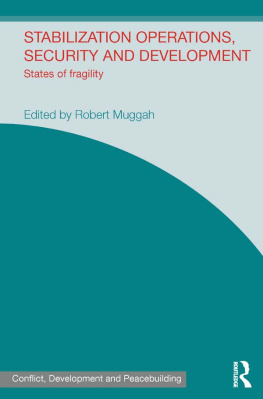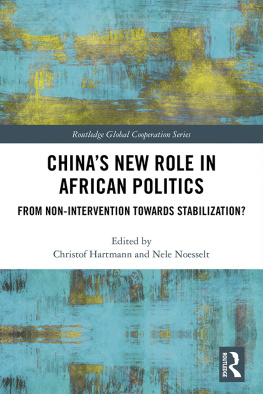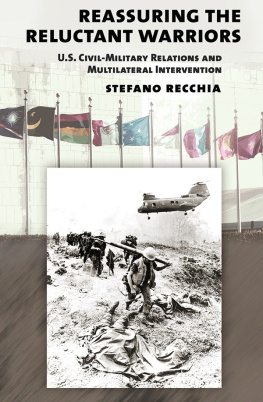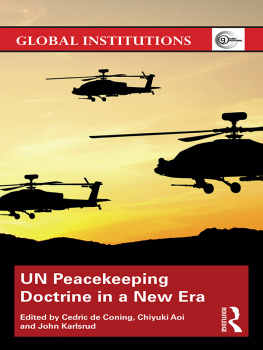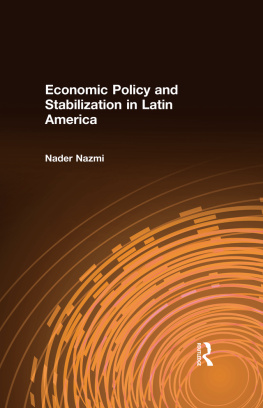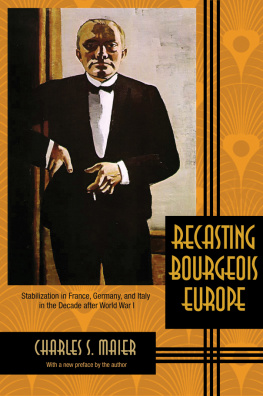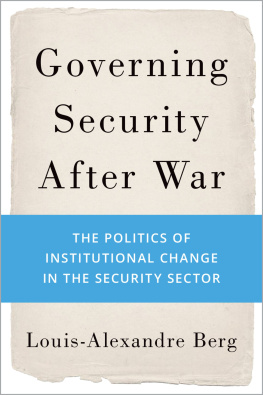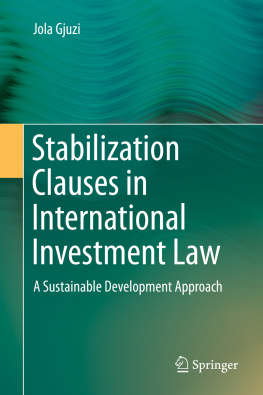Stabilization Operations, Security and Development
This edited volume provides a critical overview of the new stabilization agenda in international relations.
The primary focus of so-called stability operations since 9/11 has been Afghanistan, Pakistan and Iraq. Covering the wider picture, this volume provides a comprehensive assessment of the new agenda, including the expansion of efforts in Latin America, the Caribbean, Sub-Saharan Africa and South and Southeast Asia. By harnessing the findings of studies undertaken in Afghanistan, Brazil, Colombia, Democratic Republic of the Congo (DRC), Haiti, Jamaica, Kenya, Mexico, Pakistan, Somalia, Sri Lanka and Sudan, the volume demonstrates the impacts intended and otherwise of stabilization in practice.
The book clarifies the debate on stabilization, focusing primarily on the policy, practice and outcomes of such operations. Rather than relying exclusively on existing military doctrine or academic writings, the volume focuses on stabilization as it is actually occurring. Drawing on the reflections of scholars and practitioners, the volume identifies the origins and historical antecedents of contemporary operations, and also examines how they are linked to other policy spheres ranging from peacebuilding to statebuilding. Finally, the volume reviews eight practical cases of stabilization in disparate regions around the globe.
This book will be of much interest to students of war and conflict studies, peacekeeping and peacebuilding, statebuilding, development studies and international relations in general.
Robert Muggah is the Research Director of the Igarap Institute, a Principal of the SecDev Group, and lectures at the Instituto de Relaes Internacionais, Pontifcia Universidade Catlica do Rio de Janeiro, Brazil. He also advises the United Nations and a number of bilateral and multilateral agencies on issues of security and development.
Series: Studies in Conflict, Development and Peacebuilding
Series Editors: Keith Krause
Thomas J. Biersteker and Riccardo Bocco
Graduate Institute of International and Development Studies, Geneva
This series publishes innovative research into the connections between insecurity and underdevelopment in fragile states, and into situations of violence and insecurity more generally. It adopts a multidisciplinary approach to the study of a variety of issues, including the changing nature of contemporary armed violence (conflict), efforts to foster the conditions that prevent the outbreak or recurrence of such violence (development), and strategies to promote peaceful relations on the communal, societal and international level (peacebuilding).
The Political Economy of Peacemaking
Achim Wennmann
The Peace In Between
Post-war violence and peacebuilding
Edited by Mats Berdal and Astri Suhrke
Local and Global Dynamics of Peacebuilding
Postconflict reconstruction in Sierra Leone
Christine Cubitt
Peacebuilding, Memory and Reconciliation
Bridging Top-Down and Bottom-Up Approaches
Bruno Charbonneau and Genevive Parent
Peacebuilding and Local Ownership
Post-Conflict Consensus-Building
Timothy Donais
Stabilization Operations, Security and Development
States of fragility
Edited by Robert Muggah
Stabilization Operations, Security and Development
States of fragility
Edited by
Robert Muggah
First published 2014
by Routledge
2 Park Square, Milton Park, Abingdon, Oxon OX14 4RN
Simultaneously published in the USA and Canada
by Routledge
711 Third Avenue, New York, NY 10017
Routledge is an imprint of the Taylor & Francis Group, an informa business
2014 selection and editorial material, Robert Muggah; individual chapters, the contributors
The right of the editor to be identified as the author of the editorial material, and of the authors for their individual chapters, has been asserted in accordance with sections 77 and 78 of the Copyright, Designs and Patents Act 1988.
All rights reserved. No part of this book may be reprinted or reproduced or utilized in any form or by any electronic, mechanical, or other means, now known or hereafter invented, including photocopying and recording, or in any information storage or retrieval system, without permission in writing from the publishers.
Trademark notice: Product or corporate names may be trademarks or registered trademarks, and are used only for identification and explanation without intent to infringe.
British Library Cataloguing in Publication Data
A catalogue record for this book is available from the British Library
Library of Congress Cataloging-in-Publication Data
Stabilization operations, security and development : states of fragility / edited by Robert Muggah.
pages cm. (Studies in conflict, development and peacebuilding)
Includes bibliographical references and index.
1. Armed Forces Operations other than war Case studies.
2. United States Armed Forces Stability operations Case studies.
3. Postwar reconstruction Case studies. 4. Intervention (International law)
Case studies. I. Muggah, Robert.
UH720.S73 2013
355.028 dc23
2012048130
ISBN: 978-0-415-53676-9 (hbk)
ISBN: 978-0-203-64151-4 (ebk)
Typeset in Baskerville
by Taylor & Francis Books
Contents
ROBERT MUGGAH
STEVEN A. ZYCK, SULTAN BARAKAT AND SEN DEELY
GILLES CARBONNIER
ROBERT MUGGAH
NAT COLLETTA
STUART GORDON
ABUBAKAR SIDDIQUE
KEN MENKHAUS
MARK BRADBURY AND MICHAEL KLEINMAN
SEBASTIN ALBUJA
KIMBERLY HOWE
ROBERT MUGGAH AND ALBERT WALTER SOUZA MULLI
JONATHAN GOODHAND
ROBERT MUGGAH
Sebastin Albuja is Head of the Africa and Americas Department at the Internal Displacement Monitoring Centre of the Norwegian Refugee Council in Geneva. He holds a BA and a JD from Universidad San Francisco de Quito (Ecuador), and a PhD in Law and Public Policy from Northeastern University (Boston MA), where he was a Fulbright Scholar.
Sultan Barakat is the Founding Director of the Post-war Reconstruction and Development Unit (PRDU), at the University of York. Professor Barakat has published extensively and conducted research across Asia, Africa and the Middle East. He received his DPhil from the University of York.
Mark Bradbury is a social analyst and an experienced aid practitioner and researcher. He has worked extensively in Somalia and Somaliland and is joint author of Winning Hearts and Minds? Examining the Relationship between Aid and Security in Kenya (2010). Mark is Director of the Rift Valley Institute Horn of Africa Course.
Gilles Carbonnier is professor of development economics at the Graduate Institute of International and Development Studies. He is editor-in-chief of International Development Policy and President of Geneva's Centre for Education and Research in Humanitarian Action. Previously, he worked with the International Committee of the Red Cross in Sub-Saharan Africa, Central America and the Middle East.

